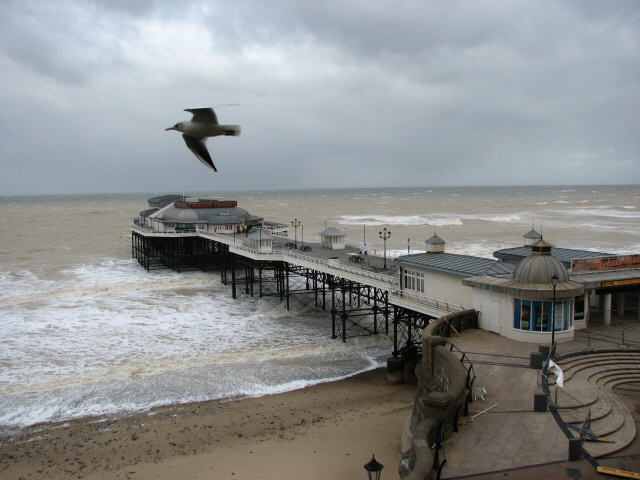Of all the reasons to be irritated by environmentalists these days, one of the most significant is its authoritarianism. Climate change is so inevitable and doom is so certain, they preach, that you’re either with us or you’re a “climate denier.” For the greens, our world is a grim and cheerless place, where the dimming forces of light fight forces as black as $50 a barrel oil. The only possible solution is to give national green organizations as much money as possible, and shut up and do what you’re told. After all, we are all sinners every time we get in our cars or airplanes.
This is why Jonathan Franzen’s article about climate change in the New Yorker is so refreshing. Franzen is best known as a novelist, whose latest book, Purity, is coming out soon. I had always thought he was a blowhard. My chief evidence for this was a profile I once read in Time while I was in the doctor’s office, which explained that Franzen was the sole direct heir of Hemingway, Fitzgerald, and O’Hara, and was crushed by the weighty ermine cloak all great novelists must wear. Franzen, we were told, toiled away every day in a coffee shop, on a laptop which was carefully disabled so that he would not be distracted by the seductive charms of Facebook or crazy cat videos.
But my impression of Franzen may be mistaken. After all, I was in a doctor’s office and reading Time, two activities guaranteed to dampen anyone’s day. But Franzen’s piece makes so many fine points that he must be commended.
After all, his arguments caused environmentalists to scream. The ‘vice president for content” (sic) at the National Audubon Society denounced Franzen for having “no journalistic experience that I know of.” (The cad!). Joe Romm, who free-market environmentalists regard as a particularly loud and buzzy fly, explained that this Franzen fellow must amount to something because his novels got three stars from Amazon. He then said that Franzen’s piece is “one of the most bird-brained hypocritical climate articles ever,” which is high praise coming from Romm, a lifetime member of the Irritated Journalists of America.
Franzen’s argument is this. He likes birds, and gives money to local bird sanctuaries and serves on the board of the American Bird Conservancy. But given the certain and inevitable hell in which advocates of climate change believe, why do anything? What’s the point of protecting a bird if the planet is going to fry?
Franzen says, “I came to be miserably conflicted about climate change. I accepted its supremacy as the environmental issue of our time, but I felt bullied by its dominance. Not only did it make every grocery-store run a guilt trip, it made me feel selfish for caring more about birds in the present than people in the future.”
Those of us who think environmentalism is a debased form of Christianity in which heaven is thrown out and hell dominates will find Franzen an ally:
Climate change has given us an eschatology for reckoning with our guilt: coming soon, some hellishly overheated tomorrow, is Judgment Day. Unless we repent and mend our ways, we’ll all be sinners in the hands of an angry Earth.
He says that he instead prefers an alternative vision derived from the teachings of St. Francis of Assisi, of ‘loving what’s concrete and vulnerable and right in front of us.” This is why he gives to organizations that protect birds. After all, he says, “It makes no difference to the climate whether any individual, myself included, drives to work or rides a bike. The scale of greenhouse gas emissions is so vast, the mechanisms by which these emissions affect the climate so nonlinear, and the effects so widely dispersed in time and space that no specific instance of harm could ever be traced back to my 0.0000001 percent contribution to emissions.”
So what should donors do who want to protect nature? Here Wooster’s Second Law of Philanthropy comes into play: Give to organizations whose results you can see. This means that helping ten poor children in your neighborhood learn to read, write, and be responsible is better than supporting 10,000 Africans. Building or repairing homes for Habitat for Humanity or Christmas in April is better than writing checks to groups that lobby the Department of Housing and Urban Development for anything.
In conservation, this means finding a place you like and figuring out how to support it. There are lots of small, privately run sanctuaries that preserve ten, twenty, or fifty acres and could use your help. Most state and national parks have nonprofits associated with them, although I’d do due diligence to make sure what your money is being used for. There are also many volunteer efforts to clean up local parks.
All of these activities will give you the satisfaction that Jonathan Franzen gets from giving to organizations that support birds. And these local groups are far more deserving of your money than are national organizations who will take your money and spend it on increasingly strident campaigns warning about planetary doom.







Bill C: As I noted in my post of May 13, Wooster’s First Law of Philanthropy is “There is no one right way to give.”
Martin:
Thanks for calling attention to the heretical piece that threatens to unravel all that is good and great about fervent movements that preach tolerance and practice anything but tolerance. If fervent climate change fear mongers were called McCarthyists, they would be incensed, even though the characterization is apt.
So, what is Wooster’s First Law of Philanthropy?
I hope it’s something like “no good deed goes unpunished”!
I hope you have a cool day!
Bill C.